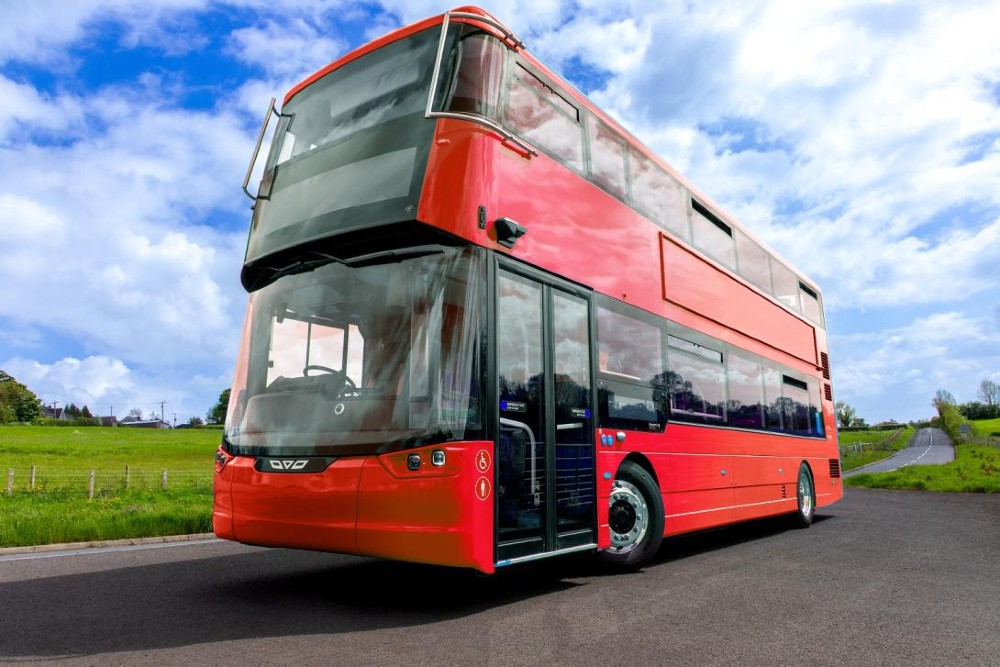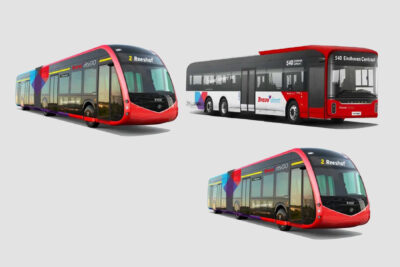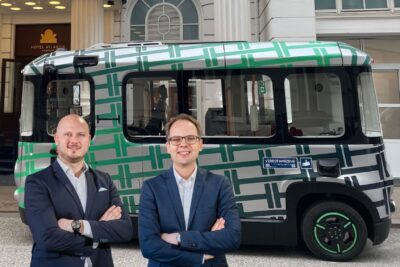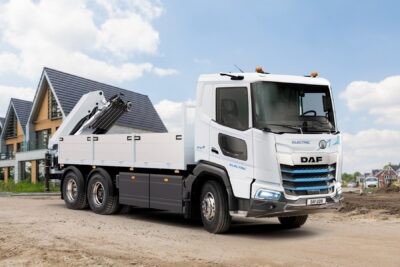Wrightbus announces £25m electric bus investment
One of the UK’s fastest growing electric bus manufacturers, Wrightbus will focus most of the investment on further development of the Electroliner. This is available in both single-deck and double-decker variations, with the current double decker version boasting a range of 320km on a single charge and recharging time of 2.5 hours. It typically features 74 seats and 21 standing places, with the battery pack available in 340kWh or 454 kWh configurations. They can ale charged via CCS with up to 300 kW or via pantograph up to 420 kW.
Wrightbus’ first and second-generation Electroliners are already used by bus operators in UK cities such as Plymouth, York, Norwich, Aberdeen, Leicester, and Belfast. In London, the Electroliner makes up Transport for London’s fleet of iconic red double decker buses, with hundreds of them now in operation on the streets of the UK capital.
Further investment is also being made outside of electric buses. Three additional pots of funding worth £5 million each will go towards product validation, the development of hydrogen fuel cell-based coaches, and a real-time telematics system for use in Wrightbus vehicles. Regarding hydrogen-based coaches, Wrightbus already operates a fuel cell version of the Electroliner, the Hydroliner, which has a range of approx. 482km. The company hopes to build on this with a hydrogen-powered coach that it aims to release in the next 18 month. It claims this coach will be capable of travelling 1,000km on a single refuel, rivalling diesel coaches for long-range travel.
Wrightbus’ plans have been welcomed by the UK government’s Science Secretary Peter Kyle, who praised the company’s focus on R&D. Kyle said: “Investing in innovation is central to our Plan for Change, but public investment alone is not enough to ensure British businesses remain at the cutting edge of global industries. Wrightbus is proof that businesses backing R&D deliver real-world impact – for both the company themselves and the local region – creating new high-quality jobs, strengthening supply chains across sectors and delivering the new industries of the future.”
Earlier this month, the company revealed its fleet of 1800 vehicles hit 50 million ‘zero emission miles’, which it claims has prevented 85,000 tonnes of CO2 from entering the atmosphere. The firm is set to produce 1,200 buses at its factory in Ballymena, Northern Ireland this year, with 95 per cent of these being BEVs. As well as working in the UK, the company also works with a number of supply chain partners in multiple countries across Europe including Germany, France, Belgium, Turkey, the Netherlands and Ireland.
Update 2 January 2026
All 50 electric double deckers are now in service across Plymouth and Cornwall, meaning almost half of the existing Plymouth Citybus fleet has been replaced by electric buses. As anticipated, they are Wrightbus vehicles, specifically the second-gen Electroliner double decker model. Richard Stevens, MD of Plymouth Citybus and Go Cornwall Bus, said: “Seeing all 50 electric buses in service is an important moment for our city and for our organisation. This fleet brings cleaner air, quieter streets and an improved travel experience for our passengers. We are proud to play our part in supporting a greener future for Plymouth and our surrounding communities.”





0 Comments